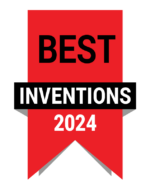Remediation at Bologna Train Station
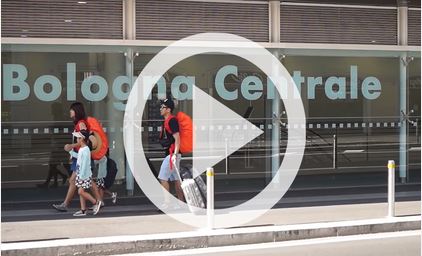
This video explains the remediation of a large chlorinated solvent plume under the train station and surrounding urban area in Bologna, Italy. The University of Rome La Sapienza has been responsible for formulating the remediation strategy for this site, and determined that PlumeStop Liquid Activated Carbon would be able to treat the low, lingering contaminant concentrations in groundwater. PlumeStop was co-applied with HRC in order to promote and sustain the microbial dichlorination of contaminants. Watch the video to learn about the remediation strategy and results.

Turn Polluted Aquifers into Purifying Filters with PlumeStop
 PlumeStop Liquid Activated Carbon is a break-through groundwater remediation technology that reduces dissolved phase contaminant plumes in days. Composed of extremely fine particles of activated carbon (1‐2μm) suspended in water through a proprietary dispersion chemistry, PlumeStop flows into the subsurface at low pressure and achieves consistent, reliable distribution – a capability unlike any other form of activated carbon used for groundwater remediation today. 
Low-cost Bioremediation of Chlorinated Solvents
HRC® is an engineered, hydrogen release compound designed specifically for enhanced, in situ anaerobic bioremediation of chlorinated compounds in groundwater or highly saturated soils. HRC enables enhanced anaerobic biodegradation by adding hydrogen (an electron donor) to groundwater and/or soil to increase the number and vitality of indigenous microorganisms able to perform the naturally occurring process of enhanced reductive dechlorination. Due to its capability of being applied via permanent wells, direct-push, and excavations, this reagent allows for clean, low-cost, non-disruptive application.

Award-Winning Remediation Solution Allows for Site Redevelopment
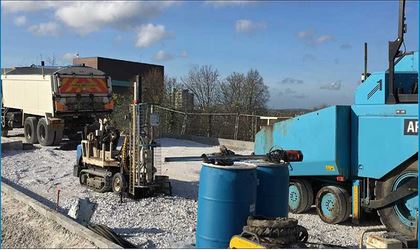
The redevelopment of a former bus station into a commercial/retail property posed unique and complex challenges. The site comprised a hillside covered by industrial waste from the Leblanc process comprising several meters of galligu above a black ash layer which was underlain by cohesive glacial till. Leaking underground storage tanks (UST)s onsite also resulted in fuel infiltrating the subsurface. A well thought-out, integrated remediation approach was crucial for the project’s success. This project has won in the category ‘Best Conceptual Design’ in the Brownfield Briefing Awards 2018, and was shortlisted in the Ground Engineering Awards 2018.
A European First: In Situ Injection of PlumeStop to Treat PFAS
At a former fire station in southern Sweden, REGENESIS just completed the first in situ treatment of a PFAS plume in Europe! Working with Envytech, WSP and the local municipality, this pilot study comprised the injection of PlumeStop Liquid Activated Carbon into the subsurface. This application converts the subsurface into an activated carbon, purifying filter that prevents PFAS egress from the site. We’re hoping to share the results as the validation continues. To learn more on how PlumeStop can treat PFAS, watch this video.

Upcoming Webinar on the Evolving Vapor Intrusion Regulatory Landscape
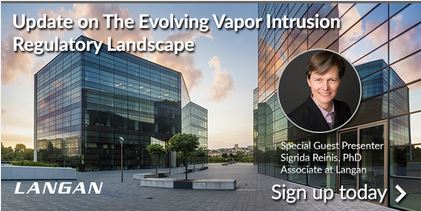
REGENESIS and Land Science were pleased to present a webinar with vapor intrusion expert Sigrida Reinis, PhD, PE, Associate at Langan. During this webinar presentation, Dr. Reinis discussed the increasingly challenging vapor intrusion regulatory landscape, and solutions to address vapor intrusion challenges at sites. The complete recording of this free webinar is now available.

Sigrida Reinis, PhD, PE
Associate, Langan
Dr. Sigrida Reinis has over 20 years of consulting and academic experience in the areas of construction engineering/management and environmental engineering. Her experience includes providing project management and technical support for complex remediation projects, including properties slated for commercial or residential redevelopment as well as military bases being redeveloped or converted to a National Park. Dr. Reinis has designed vapor mitigation systems for new structures to be located on closed landfills and Brownfield redevelopment sites as well as for existing structures on sites undergoing remediation. She has provided project management and technical support for closure of a mixed waste landfill and “clean closure” of four sites containing demolition debris and hazardous constituents.
Rick Gillespie
Senior Vice President, North America, REGENESIS
Mr. Gillespie serves as REGENESIS Senior Vice President, North America, directing a team of technical sales consultants and engineers across North America providing industry-leading support to REGENESIS customers. He has over 20 years of experience in the environmental remediation industry. Mr. Gillespie joined REGENESIS after a successful career as a Research Scientist at Battelle Memorial Institute. His work experience has been focused on innovative remediation technologies for the treatment of chlorinated solvents, petroleum hydrocarbons, and metals in soils and groundwater. Mr. Gillespie was a co-author on the Multi-Site Air Sparging Design Paradigm. In addition, he was a contributor to the publication Principles and Practices of Enhanced Anaerobic Bioremediation of Chlorinated Solvents. Mr. Gillespie earned his B.S. in Environmental Science from the University of Oklahoma.
Upcoming Webinar on Incorporating CSIA in Vapor Intrusion Investigations
Land Science is pleased to present a webinar with Dora Taggart, President of Microbial Insights, Inc., and Sam Rosolina, PhD, Analytical Chemist and Manager of the Compound Specific Isotope Analysis (CSIA) Laboratory at Microbial Insights. In this webinar, Dora and Sam will discuss incorporating CSIA in vapor intrusion investigations. This live webinar starts Thursday, September 19th, 2019 at 11am pacific / 2pm eastern.

About the Presenters:
 Dora Taggart Dora Taggart
President, Microbial Insights, Inc.
Dora Taggart is the President of Microbial Insights, Inc. in Knoxville, Tennessee. She received a Biomedical Engineering degree from Vanderbilt University and has focused on the optimization and implementation of molecular tools for environmental remediation, microbiologically-influenced corrosion and microbial source tracking. Since joining Microbial Insights in 2001, she has developed and commercialized over 60 different nucleic acid-based analyses. Under her direction, Microbial Insights has become a worldwide provider of molecular tools for leading consulting firms, government agencies and academia. Ms. Taggart runs national and international workshops on these tools. She has more than 20 peer reviewed co-authored publications and is often invited to speak at conferences around the world.
 Sam Rosolina, PhD Sam Rosolina, PhD
CSIA Lab Director, Microbial Insights, Inc.
Sam Rosolina is Director of the Compound Specific Isotope Analysis (CSIA) Laboratory at Microbial Insights. Dr. Rosolina received his B.A. in Chemistry from Berea College in Kentucky and went on to complete a PhD in Analytical Chemistry at the University of Tennessee in Knoxville. Sam is constantly working to broaden the scope of remediation analysis through the implementation of cutting edge methods and instrumentation, and is focused on making these analytical methods more accessible overall.
Upcoming Events
 |
Northwest Remediation Conference
10/3/2019, Tacoma, WA
|
 |
35th Annual International Conference on Soils, Sediments, Water, and Energy
10/21 – 10/24/2019, Amherst, MA
|
 |
Railroad Environmental Conference
10/22 – 10/23/2019, Urbana, IL
|
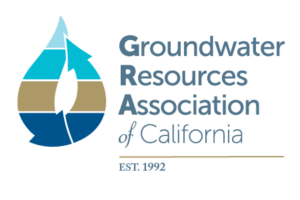 |
GRA Remediation Conference
11/13 – 11/14/2019, Santa Ana, CA
|
 |
NGWA Groundwater Week
12/3 – 12/5/2019, Las Vegas, NV
|
|






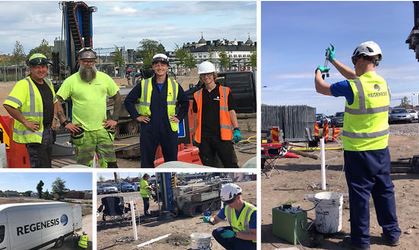



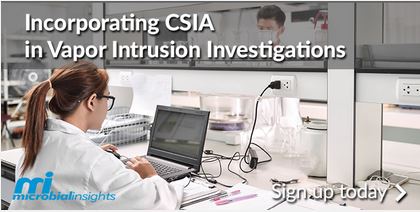
 Dora Taggart
Dora Taggart Sam Rosolina, PhD
Sam Rosolina, PhD







